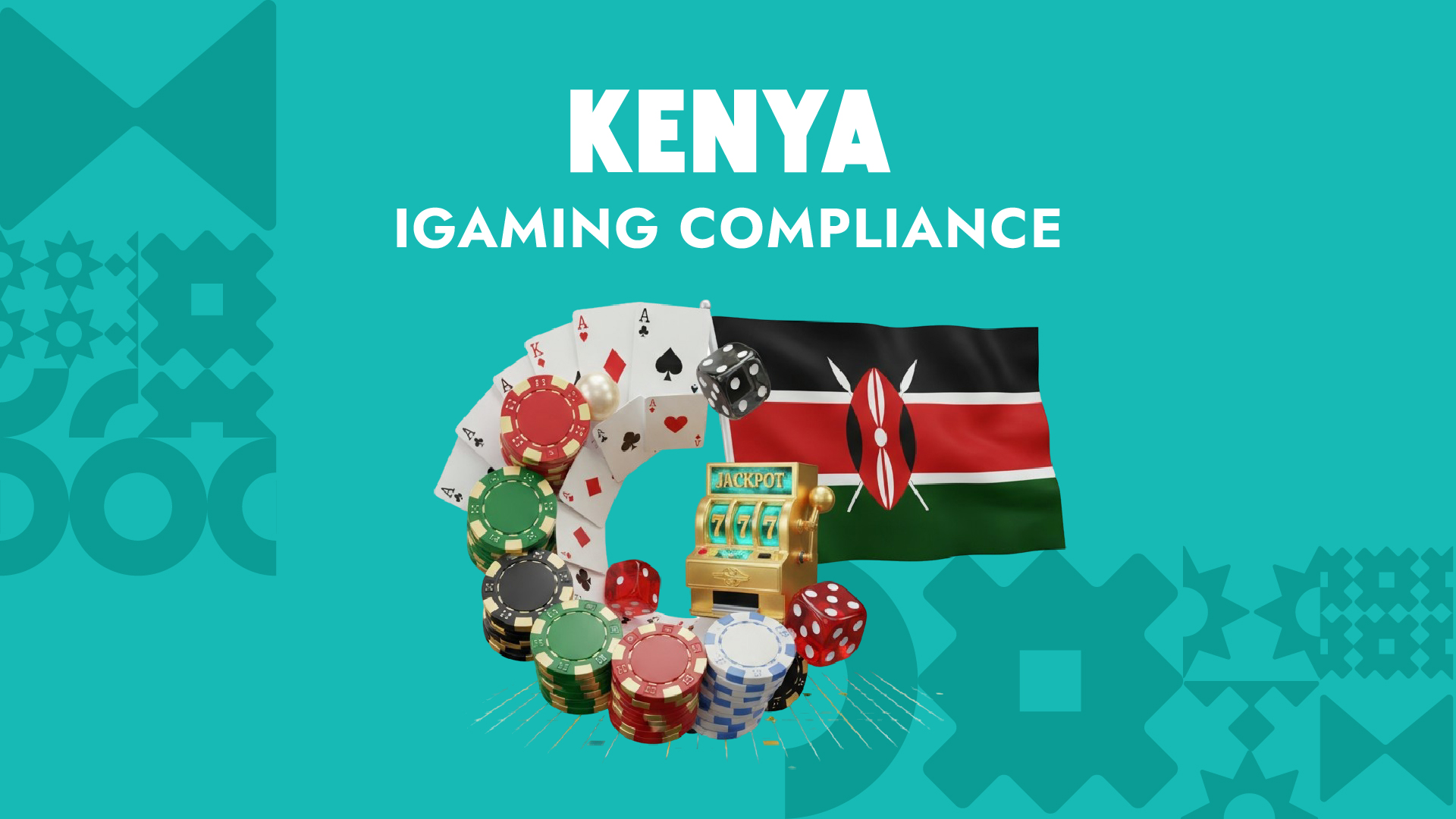With more than 55 million citizens and a median age of just 20 years, Kenya represents one of Africa’s youngest and most connected digital markets.
Known for its entrepreneurial spirit — and for innovations like M-Pesa, which revolutionised mobile payments — the country has become a focal point for the iGaming industry’s expansion across the continent.
As sports betting and online gaming continue to rise in popularity, so too does the need for clear, compliant, and locally adapted operations. Kenya’s regulatory framework is evolving to keep pace with this growth, setting out specific rules for both domestic and foreign operators.
This Kenya Gamblig Guide explores how the Betting Control and Licensing Board (BCLB) regulates the market, what’s required to obtain a legal licence, and how operators can position themselves for sustainable success in East Africa’s most promising gaming hub.
The Legal Framework for Gambling in Kenya
Gambling activities in Kenya are primarily governed by the Betting, Lotteries and Gaming Act (Cap. 131), originally enacted in 1966. The Act establishes the Betting Control and Licensing Board (BCLB) as the principal regulatory authority responsible for the supervision and licensing of all forms of gambling within the country.
Under Cap. 131, the BCLB oversees and issues licences for:
- Sports betting, both retail and online;
- Lotteries and prize competitions; and
- Casino and gaming operations.
In addition to licensing, the Board enforces compliance with consumer protection standards, advertising restrictions, anti–money laundering (AML) measures, and the use of mobile-money systems for deposits and withdrawals — a crucial aspect of Kenya’s gambling ecosystem.
However, it is important to note that the legal framework is currently under review. The proposed Gambling Control Bill (2023) seeks to repeal Cap. 131 and establish a new Gambling Regulatory Authority (GRA). The GRA would consolidate oversight across both land-based and digital gambling sectors, introduce stricter responsible-gaming obligations, and modernise enforcement mechanisms in line with Kenya’s growing online betting market.
Until this new framework is enacted, operators must remain compliant with the existing provisions under Cap. 131 and the directives of the BCLB.
Who Can Operate in Kenya’s Gambling Market?
Both Kenyan and foreign-owned companies are eligible to apply for a gambling licence, provided they are registered as legal entities within Kenya.
This requires the establishment of a locally incorporated company, complete with a physical office address, Kenyan directors or representatives, and valid tax registration credentials — including a Personal Identification Number (PIN) and VAT certificate issued by the Kenya Revenue Authority (KRA).
To qualify, operators must also demonstrate that they possess the technical and financial capacity to manage a gambling platform securely and responsibly. This involves:
- Using certified gaming software providers approved by the BCLB;
- Implementing robust player protection and responsible gambling tools;
- Maintaining transparent payment and auditing systems that comply with AML and data protection standards.
For foreign operators, partnering with local licence holders, technology suppliers, or payment providers remains the most effective route to compliance. Such partnerships simplify the licensing process, ensure alignment with domestic regulations, and provide valuable access to market-specific knowledge — particularly around mobile payments and customer engagement practices unique to Kenya.
Licensing Requirements and Process
Obtaining a gambling licence from the Betting Control and Licensing Board (BCLB) is a structured and multi-stage process. While the specific requirements differ depending on whether the licence covers betting, casino, or lottery operations, every applicant must demonstrate legal incorporation, financial stability, and technical reliability.
The standard procedure includes:
- Company Registration – The applicant must first be incorporated in Kenya and obtain valid tax identification from the Kenya Revenue Authority (KRA), including a PIN and VAT registration.
- Application Submission – A formal application is filed with the BCLB, supported by:
- Certified company documents;
- Shareholder and director information;
- Audited financial statements;
- Business and operational plans; and
- System certifications verifying the integrity of gaming and payment software.
- Background and Integrity Checks – The BCLB conducts due diligence on directors, shareholders, and key personnel to verify compliance history, financial probity, and adherence to anti-money laundering (AML) regulations.
- Technical and Financial Assessment – Applicants must show evidence of secure infrastructure, audited betting systems, and adequate capitalisation to sustain operations. The authority may require demonstration of uptime monitoring, data encryption, or transaction reporting tools.
- Approval and Licensing Fees – Once approved, the operator pays the relevant licensing and renewal fees.
As of 2024, a standard bookmaker’s licence cost approximately USD 3,500 for local operators and USD 7,000 for foreign-owned entities, with annual renewal fees of around USD 1,200.
However, upcoming regulatory reforms may significantly increase capital and fee thresholds, with proposals suggesting minimum financial commitments of up to USD 1.5 million for full-scale online betting licences.
Licences are generally valid for one year and subject to annual renewal following a compliance review. The BCLB also conducts on-site inspections and system audits to ensure continuous adherence to regulatory standards throughout the licence term.
Taxation and Compliance
Kenya’s gambling tax regime has evolved significantly in recent years, reflecting both market growth and regulatory urgency. Operators must navigate a range of tax obligations and compliance requirements to remain legally viable.
Key tax obligations include:
- Corporate income tax: Standard rate on operator profits.
- Withholding tax on player winnings: Previously 20 % of winnings.
- Excise duty on betting stakes: As of June 2025, excise duty was reduced from 15 % to 5 % of funds transferred into a punter’s betting wallet. In addition to tax
Compliance, operators must enforce strict responsible gaming policies, including age verification, self-exclusion tools, transparent payout systems, and oversight of mobile-money payment flows. Failure to comply may result in heavy fines, license suspension or criminal liability, as Kenya tightens enforcement under both the current regime and the proposed regulatory overhaul.
Opportunities and Challenges in the Kenyan Market
Kenya remains one of the most attractive entry points for iGaming in Africa — largely due to its mobile-first culture and widespread adoption of mobile-money systems like M-Pesa, which facilitate instant deposits and withdrawals. Over 85 % of adult internet users in Kenya transact via mobile, making it an ideal environment for operators offering lightweight, smartphone-optimised betting experiences.
The greatest opportunities lie in mobile sports betting, virtual sports, and data-driven localisation, where operators can tailor promotions and user interfaces to reflect Kenyan preferences — such as football-centric markets, small-stake betting, and community-based loyalty programs.
However, the same factors that drive growth also create challenges. The market is increasingly competitive and compliance-intensive, with frequent tax revisions and heightened scrutiny on advertising, AML, and responsible-gaming practices.
Operators must be prepared for:
- High regulatory oversight — particularly around payment processing and data retention;
- Volatile tax policy that can affect profitability; and
- Rising acquisition costs, as established brands compete aggressively for mobile users.
Success in Kenya therefore depends on a localized and compliant go-to-market strategy — one that integrates secure mobile payments, transparent operations, and strong brand trust.
Expanding Beyond Kenya
For many iGaming companies, Kenya serves as a strategic launchpad for regional expansion across Africa. Its combination of a mature regulatory framework, advanced mobile-payment ecosystem, and English-speaking market makes it an ideal testing ground for scalable operations.
Once a platform achieves compliance and operational stability under the BCLB regime, expanding into Tanzania, Uganda, Ghana, or Nigeria becomes significantly more manageable. These markets share similar mobile-first betting cultures but differ in tax structures, local partnerships, and licensing requirements — areas where prior Kenyan experience gives operators a tangible head start.
Cross-border success, however, requires agility. Operators must adapt to fragmented regulatory systems, localise payment integrations, and maintain consistent responsible-gaming practices across jurisdictions.
To explore how to scale your operations sustainably across Africa’s regulated markets, read our in-depth guide on entering the African iGaming ecosystem by PlaylogiQ.
Kenya’s Road to a Regulated Digital Future
Kenya’s gambling industry is one of Africa’s most mature and technologically advanced. With clear licensing rules and a growing player base, it presents a major opportunity for regulated betting operators and iGaming developers.
To operate successfully, however, compliance is key. Understanding the Kenya gambling laws, licensing requirements, and taxation system will help ensure a smooth entry — and long-term sustainability — in this thriving market. As Kenya continues to modernize its gambling regulations and embrace digital innovation, compliant operators are well-positioned to capture a growing, mobile-first player base.


